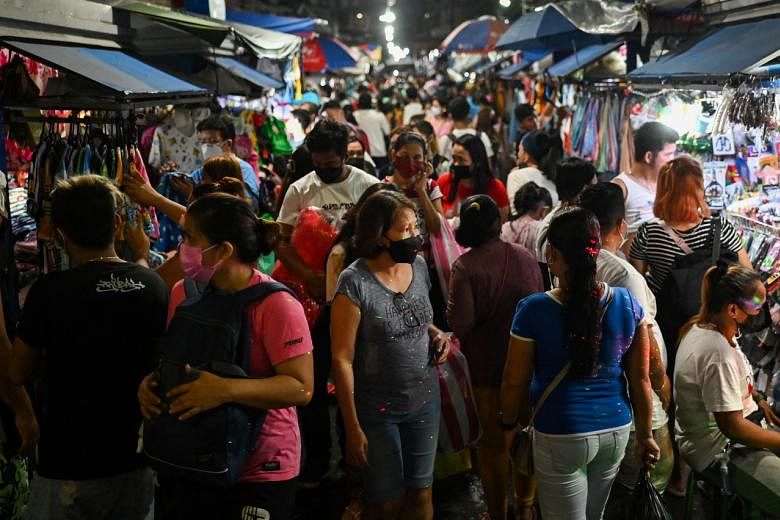MANILA - The Philippines will no longer issue daily Covid-19 updates, in a subtle pivot towards treating Covid-19 as endemic - a disease Filipinos will just have to live with rather than defeat.
This comes as the country reported its fourth case of the extremely infectious Omicron variant, and health officials called an uptick in cases in Metro Manila in recent days a "warning" that another wave could be imminent.
All information on cases, deaths and hospital occupancy rates would still be updated on the Health Ministry's websites, Health Undersecretary Maria Rosario Vergeire told reporters on Monday (Dec 27).
But from Jan 1, there would no longer be situation reports released each day to reporters and on social media.
The Philippines joins Singapore and many other countries in Europe in shifting its focus to hospital capacity rather than tallying cases as they transition to treating Covid-19 as endemic.
Professor Teo Yik Ying, dean of the National University of Singapore's Saw Swee Hock School of Public Health, earlier told The Straits Times that given the "considerable degree of unknowns in terms of the proportion of daily infection numbers that is symptomatic or asymptomatic, it makes interpreting infection numbers difficult and, at this stage, rather pointless too".
Across Europe, a feeling that is taking hold is that the coronavirus will not be eradicated with vaccines or lockdowns but has become something that people must learn to live with, maybe for years to come.
Dr Vergeire did not say why the ministry decided to end its daily case bulletins.
But the Health Ministry later said in a statement that it was meant to "streamline public communication".
It added that the Covid-19 tracker on its website already had information available in the daily reports.
Still, the move drew criticisms in the Philippines.
"I think that it's a mistake… It's a tool for us, the public, to know the positivity rate of infections in the country. Whether it is decreasing or increasing, it is the right of the people to know this and be informed about it," said Senator Miguel Zubiri.

Dr Guido David, a fellow at the Octa Research group, said that now might not be the right time to stop issuing daily bulletins, as the Philippines was seeing an uptick in infections, especially in the densely populated cities of Metro Manila.
Cases in Metro Manila - home to more than 13 million - have been rising in recent days, as Filipinos packed malls and restaurants and gathered in large groups for holiday reunions.
The reproduction number - which measures how quickly a virus is spreading or receding - has crept up from 0.44 last week to 0.85 this week. With that, the capital region is now classified as a "low risk" area from being "very low risk".
While the Philippines still has the second-worst outbreak in South-east Asia after Indonesia, it has managed to keep daily infections at below 500 in recent weeks.
On Monday, health officials said they found the Omicron variant in a traveller from the United States who arrived in Manila on Dec 10.
Dr David said the higher caseloads could just be due to more people going out during the holidays, and that there was still no "solid upward trend" that could warrant tighter quarantine restrictions.
He said Covid-19 cases could still go down after the New Year festivities.












